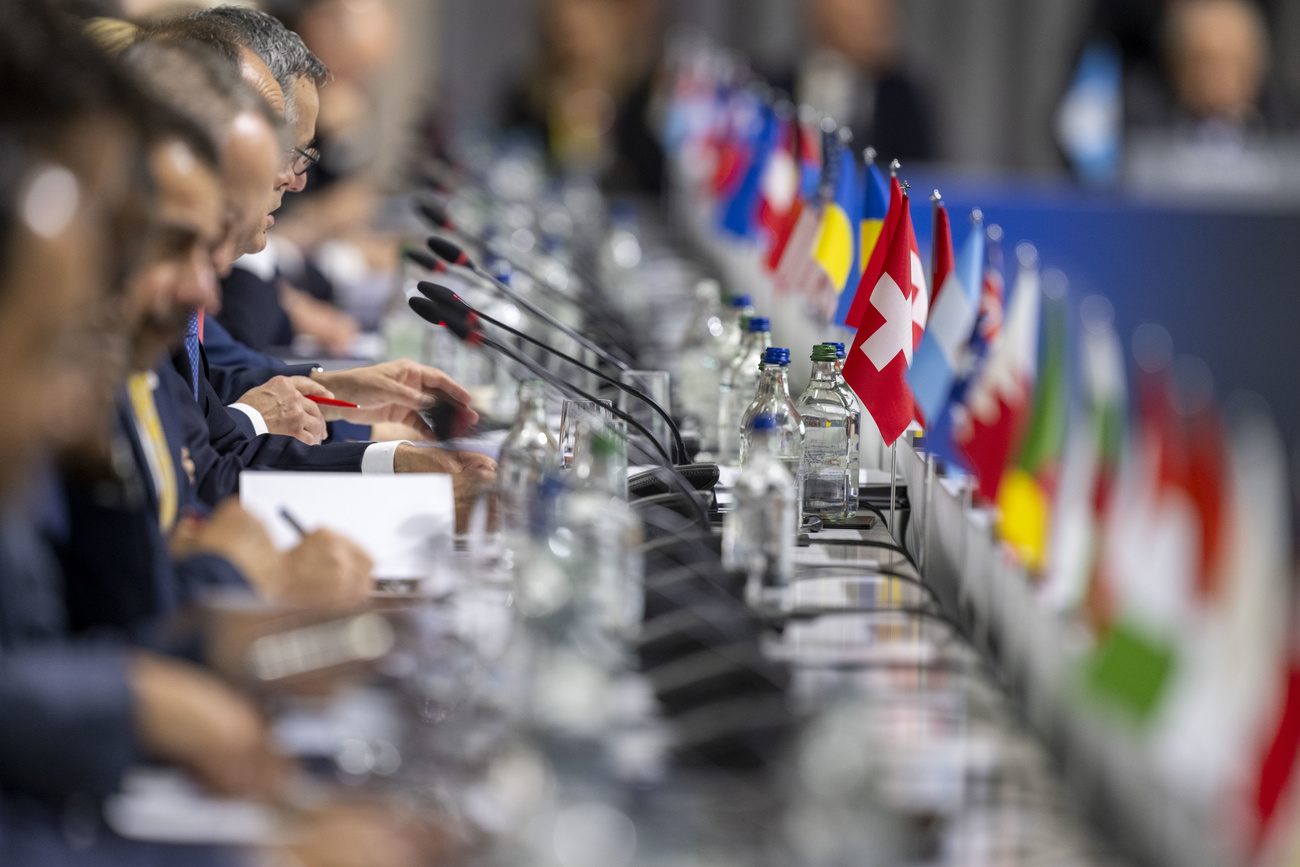
Ukraine peace summit failed to meet ‘fairytale’ expectations

The world’s media has given a mixed reaction to the Swiss-hosted Ukraine peace conference, which produced a joint communiqué that was signed by most delegates but was rejected by several key countries.
The Bürgenstock declaration, backed by 84 of the countries and organisations in attendance, laid the blame of the conflict squarely at the door of Russia.
Check out our selection of newsletters. Subscribe here.
But the statement failed to attract support from several attendees, including India, South Africa, Saudi Arabia, Mexico and Brazil. Russia and China were not present at the two-day conference in central Switzerland.
+ Why China shunned Swiss-led Ukraine peace summit
The media in Russia and Ukraine unsurprisingly delivered conflicting verdicts on the result of the summit. The final communiqué contained significant changes from the initial draft, reported the Ukrainian newspaper European Pravda.
“In a short period of time it was radically revised, correcting key problems,” the newspaper wrote. “The updated draft turned out to be quite acceptable for Ukraine. Its authors (finally!) found the courage to call the war ‘Russian aggression’.”
Russia state-controlled media was less complimentary, echoing the previously stated view of the Kremlin.
“The outcome of the peace summit in Switzerland, even to a layperson’s eye, seems dubious,” said the Russian newspaper MK.
‘Diplomatic tightrope walk’
One of the non-signatories, South Africa, took issue with Israel’s participation at the peace summit despite being accused of war crimes and human rights violations by a United Nations Human Rights Council commission.
+ How to find path to peace in Ukraine
The Daily Maverick quoted South Africa’s lead delegate, Sydney Mufamadi, as saying that this “failure to uniformly and fairly implement international law in all conflict situations globally weakens the normative framework of international accountability and makes the world less safe for all”.
Colombian President Gustavo Petro, pulled out of the Bürgenstock summit at the last moment, notes the Spanish newspaper El País. Petro took to the social media platform X on Saturday to complain that the summit’s “conclusions are already predetermined” by “blocs of countries for war”.
The Indian Express interpreted India’s refusal to sign the declaration as another sign of “New Delhi’s diplomatic tightrope walk that has marked its diplomacy since the war began”. Several Indian media made note of India’s reliance on Russia for weapons and cut-price oil imports.
‘Dangerous illusion’
Above all else, Bürgenstock reinforced the trenchant divide between the United States and Europe on one side and the China-led “Global South” nations. “The division of the international community remained unresolved, and the difficulty of achieving peace was once again exposed,” noted the Japanese newspaper Mainichi Shimbun.
The Swiss media also focused on the lack of global consensus, which was laid bare by the summit’s joint communiqué.
“At the fairytale Bürgenstock luxury hotel this weekend people were indulging in the no-less fairytale idea that a diplomatic solution to the conflict could somehow be found. That is a dangerous illusion,” reported the Blick newspaper.
“India is missing. Saudi Arabia is missing. Mexico is missing. South Africa is missing,” stated Der Bund. “Unity and solidarity were invoked at the beginning of the Bürgenstock conference – but when it came to the decisive final document, the very countries in whom so much hope was placed went missing.”
Edited by Balz Rigendinger/ts

In compliance with the JTI standards
More: SWI swissinfo.ch certified by the Journalism Trust Initiative


























You can find an overview of ongoing debates with our journalists here . Please join us!
If you want to start a conversation about a topic raised in this article or want to report factual errors, email us at english@swissinfo.ch.